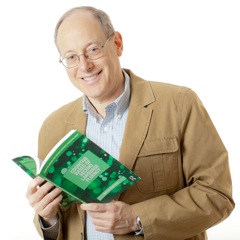 Second language fluency: Challenges for researchers and educatorsNorman Segalowitz 先生 Department of Psychology, Concordia University
Second language fluency: Challenges for researchers and educatorsNorman Segalowitz 先生 Department of Psychology, Concordia University( *
Photo by David Ward )
Achieving a high level of fluency in a second language is one of the most difficult tasks facing second language learners. Fluency attainment poses challenges for teachers, for designers of technology-assisted learning, as well as for researchers interested in second language acquisition. In this talk I discuss barriers to second language fluency, some of the ways one can study these barriers in the laboratory, and the implications such research might have for language instruction and for strategies to overcome barriers to fluency. The main focus of the presentation will be recent cognitive research
concerning ways of measuring the mental efficiency or cognitive fluency that develops with experience using a second language and that must underlie speaking fluency in the language. The presentation will also describe a framework that links cognitive and social factors as a way for thinking about second language fluency issues.
Prof. Segalowitz’s research focuses on the cognitive processes underlying adult acquisition of second language skills. Prof. Segalowitz’s research focuses on the cognitive processes underlying adult acquisition of second language skills. He examines the nature of automatic processing and of attention-based processing as factors underlying oral and reading fluency in a second language. He is especially interested in the barriers that many adults face in attempting to master second languages. Prof. Segalowitz has published extensively in many of the leading journals and handbooks in this field, including an award winning book entitled
Cognitive Bases of Second Language Fluency (2010
, Routledge). He is also interested in cognitive science approaches to understanding how second languages can be more effectively taught.
(From
http://web.me.com/normansegalowitz/NS-Site/About.html)